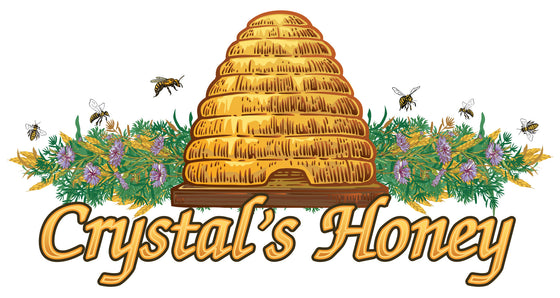The most baffling thing about bee products is the selection—especially propolis and pollen. These gifts from the hive are beneficial to bee health, and they have underlying variations you may not know about. Let’s explore the difference between bee pollen and propolis.
What Is Bee Pollen?
Bees create pollen by mixing flower pollen with nectar, enzymes, honey, wax, and bee secretions. Bees collect these granules from flowers and pack them into pellets. Bee pollen is unique because it is protein-rich and nutrient-dense. It’s actually a superfood!
What Is Propolis?
Propolis is like resin—a solution that protects a surface from damage and gunk. This mixture of beeswax, saliva, and botanically sourced exudate seals gaps and protects the hive from contaminants. It’s like the bee’s own glue and antimicrobial solution. Quite resourceful, wouldn’t you say?
Differences in Production
The fundamental difference between bee pollen and propolis is the production process. We know that bees collect pollen directly from flowers and pack them into pellets. This process involves collecting various elements like pollen, nectar, and enzymes. Propolis, however, comes from tree resins and beeswax mixed by bees to form a protective barrier.
Nutritional Content
Nutritionally, bee pollen is like a tiny multivitamin. It contains proteins, free amino acids, vitamins, and minerals. The composition can vary depending on the available flora. Propolis is less about consumption and more about its practical applications. Bees use it for its sealing and protective qualities.
Role Within the Hive
Within the hive, pollen and propolis have distinct roles. Bee pollen is a food source for the colony, crucial for their diet and health. Propolis enhances the colony’s fortress, seals cracks, and protects against intruders. It’s fascinating how bees utilize what nature offers them so effectively!
Usage and Applications
While bee pollen is typically a dietary supplement for us humans, we use propolis in products like cosmetics and natural remedies. Whether you use the bee’s pollen-rich nutrient profile or propolis’s protective nature in projects, the applications highlight their unique properties.
Bee Pollen vs. Propolis: Which Is Right for You?
Choosing between bee pollen and propolis depends on your needs. For a nutritional boost in your routine, bee pollen could be for you. If you need something for topical use, propolis could be your pick. It’s all about what fits into your lifestyle and needs.
Make Healthy Choices at Crystal’s Honey
In essence, bee pollen and propolis offer unique benefits derived from the hive. Whether you are drawn to the nutritional powerhouse of bee pollen or the protective qualities of propolis, integrating these natural wonders into your life can be both enriching and rewarding.
Make a discovery today at Crystal’s Honey! We offer various products, including our bee pollen for sale. It’s only a matter of time before you notice differences and improvements to your daily routine.
